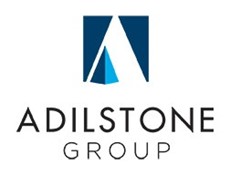Why Learning a Foreign Language is Beneficial for Working Abroad
- See the World at Work Why Learning a Foreign Language is Beneficial for Working Abroad
Have you ever thought of the possibility of advancing your career to another part of the world? If this is you, one of the most instrumental things you can do, starting even now, is to consider learning a new language. Supposing that working abroad and traveling for long periods is something you foresee yourself doing in the future, there is something to gain from bringing awareness and education to something as vital as language itself.
It’s not only an essential tool that people use to communicate, but it’s the way they relate and form deeply rooted connections. If you’re curious about how something mundane as expanding your vocabulary and sentence structure may relate to the workforce, keep reading as we dive into the importance of it. There will be mentions of the professional and personal enhancements that come with language acquisition as well as the different kinds.
What Are the Benefits?
Just the thought of learning a new language can seem like another heavy load to carry on our shoulders. Not to mention it’s also very time and energy-consuming, requiring a long-term commitment of investment.
However, something as challenging as that is surely to have effects that are rewarding and transformative. Although some benefits are not instantaneous, the long-term outcomes lead to impactful enrichment for all aspects of life.
Personal Benefits
- Personal Growth - There are so many areas we can personally develop when we set aside time and prioritize learning an additional language. Our cognitive abilities become more enhanced especially when it comes to memory retention, decision-making, and creativity levels. Because of the need to also switch between your native language to make connections, you become more aware and attentive to linguistic cues and word inflections.
- Cultural Understanding - Dedication to another language allows us to be intertwined and insightful with the culture, customs, mannerisms, and norms associated with that language. Something more difficult to adapt to are the underlying nuances that are not always visibly recognizable. These are the characteristics that are going to be important when working or conducting business in a foreign country.
- Meaningful Travel Experiences - When traveling to another country, it's not very uncommon to find people speaking English. It’s almost weird and awkward sometimes when we try to communicate in the local language. However, by engaging and interacting with local communities in their native tongue, we bridge the communication gap that keeps us from fully experiencing and immersing in the culture.
Professional Benefits
- Network Expansion - The network of people in your circle is likely to expand because of the broader accessibility to professionals with different cultural backgrounds. You open doors to new communities and social networks when you bond over a shared commonality. As a result, the reach can extend beyond the homeland to clients, partners, and colleagues internationally.
- Competitive Advantage - When it comes to applying for jobs, being bilingual or multilingual can give you the upper hand and may even lead to higher earning potential. Language proficiency on your resume helps you stand out because it not only shows adaptability and cultural awareness but also the ability to work in diverse environments, which as a whole, increases your employability. This is also a great area to take advantage of if learning languages comes naturally to you.
- Career Diversity - Possessing language skills provides a new horizon of job opportunities in fields such as translation & interpretation, diplomacy, tourism, language teaching, international relations, and countless more. Of course, traditional jobs unrelated to language mastery can also use people with that kind of expertise. Moreover, if the occasion arises for career advancement within international projects or roles, knowing an extra language might be just what you need to get that assignment or promotion.
How Can I Make A Decision?
- Consider and analyze your plans for the future
- Look into potential areas where you can further your career globally
- Explore language learning apps and tools (Duolingo, Pimsleur, Rosetta Stone)
- Find someone, maybe a family member, colleague, or friend to join you and your journey
Related Content




Comments